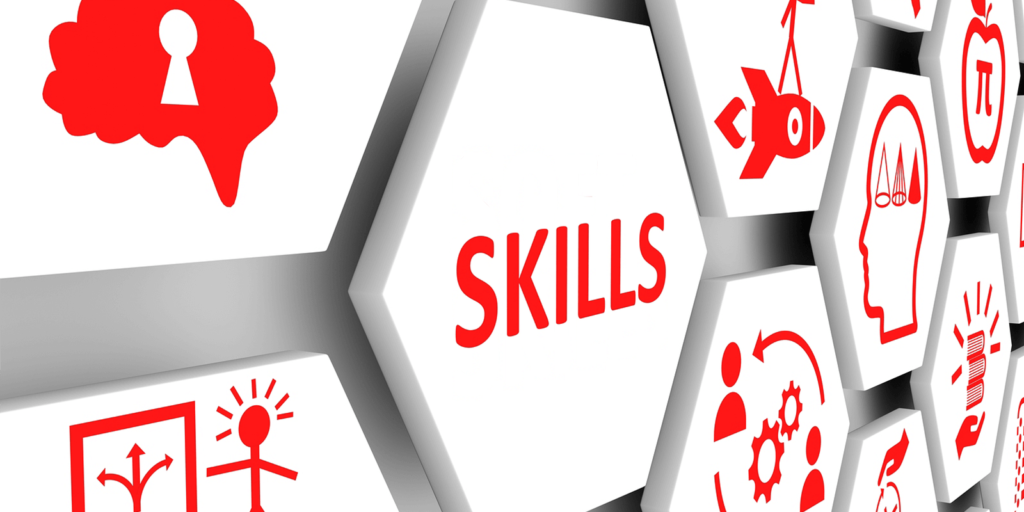Enhancing your resume with the right skills can significantly increase your chances of success in the competitive job market. Employers are always on the lookout for candidates who demonstrate a clear set of skills that align with the requirements of the job. Among the top resume skills for success are communication skills, which are crucial in virtually every industry.
Effective communication involves listening attentively, expressing oneself clearly, and adapting your communication style to your audience. Another essential skill is problem-solving. Employers value individuals who can identify challenges and devise effective solutions, showing initiative and independence. Additionally, teamwork is a skill highly sought after by employers. Being able to work efficiently in a team, respecting others’ opinions, and contributing your knowledge and skills toward a common goal is crucial.
Technology skills have also become increasingly important, especially with the rise of remote work. Proficiency in various software applications, understanding of digital communication tools, and basic troubleshooting abilities are often essential. Lastly, leadership skills, even for non-managerial roles, are highly desirable. These include the ability to motivate others, make decisions, and take responsibility. Remember, showcasing your skills effectively on your resume can make you stand out among other candidates and increase your chances of landing the job.

Preferred Soft Skills
In today’s fast-paced work environment, soft skills have emerged as indispensable traits for professionals across various industries. These skills, which encompass personal attributes, social nuances, and communication capabilities, significantly influence one’s effectiveness and productivity at work. Among the myriad of soft skills, certain ones are particularly valued by employers. Communication, for instance, is highly sought after as it facilitates clear and concise exchange of ideas and information.
Emotional intelligence, which includes empathy and understanding, is another crucial skill that enables individuals to work harmoniously in a team. Leadership, a soft skill that entails the ability to guide and inspire others, is also much appreciated, especially in roles that require managing teams or projects. Problem-solving and critical thinking skills are other important attributes that can aid one in navigating complex situations and making informed decisions at work.
In addition, adaptability, a skill that involves being open to change and being able to adjust to shifting situations, is becoming increasingly important in the modern, dynamic workplace. Creativity and innovation, too, are much-needed soft skills that can help individuals bring fresh perspectives and unique solutions to the table. Furthermore, resilience, or the ability to bounce back from setbacks, is a highly valuable skill that can help professionals maintain positive mental health and work performance. In essence, these preferred soft skills can greatly enhance one’s professional persona and pave the way for career advancement.
Leadership Abilities
Leadership abilities encompass a broad range of skills that facilitate efficient and effective management of teams, groups, or organizations. These skills include effective communication, the ability to inspire and motivate, decision-making attributes, and emotional intelligence. An individual with robust leadership abilities can articulate strategies and concepts clearly, ensuring that the team understands and is aligned with the overall vision.
They can inspire and motivate others, fostering a sense of unity, optimism, and enthusiasm even in the face of challenges. Great leaders are also adept decision-makers; they can analyze situations, consider various perspectives, and make sound judgments that benefit the whole team or organization. Emotional intelligence, which includes self-awareness, empathy, and social skills, is another critical leadership ability.
Leaders with high emotional intelligence can appreciate others’ emotions, manage their own feelings, and interact effectively with different personality types. Assertiveness without being overbearing, the ability to delegate effectively, and resilience in the face of adversity are also important facets of leadership. These abilities combined enable a leader to build a cohesive, high-performing team that is capable of achieving their set objectives.
Ultimately, developing leadership abilities is a lifelong journey that requires constant learning, self-improvement, and adaptation to ever-changing environments. Leaders who continually hone these skills can create a positive and productive work environment, driving growth and success for their teams and organizations.

Effective Communication
Effective communication forms the backbone of any successful relationship, be it personal or professional. It entails more than just exchanging information; it’s about understanding the emotion and intentions behind the information. A high level of communication proficiency can lead to increased productivity, smoother problem-solving, and enhance morale. At its core, effective communication is a two-way process involving both speaking and listening, and it involves not only verbal but also non-verbal cues such as body language, facial expressions, and tone of voice.
In the realm of business, effective communication can foster a robust team dynamic, enabling the workforce to function with increased efficiency. It can also play a significant role in customer relations, by creating a positive image of the company and its services. On a personal level, effective communication can foster stronger relationships, helping to resolve conflicts, deepen connections, and create a better understanding between individuals.
Moreover, effective communication is not stagnant. It requires constant effort, practice, and adaptability, especially in today’s digital age where the modes of communication are continuously evolving. To communicate effectively, one must be aware of the cultural and personal differences that may influence how messages are received. It’s also crucial to be mindful of the context in which the communication occurs.
Another crucial aspect of effective communication is active listening. This involves being fully present and engaged in the conversation, providing feedback, and demonstrating understanding. It’s not just about processing words but also about understanding the underlying emotions, concerns, or ideas being communicated.
In conclusion, effective communication is an art that involves multiple components – speaking, listening, understanding, and interpreting. It’s a skill that can be developed and honed over time, leading to improved relationships and increased productivity in various aspects of life. Whether it’s a business setting or personal interaction, effective communication is a vital tool for success.
The Value of Communication Skills
Communication skills play a pivotal role in every aspect of life. They are an indispensable part of personal development, professional growth, and maintaining fruitful relationships. Proper communication is not merely about speaking your thoughts out loud, but also involves active listening, understanding the perspective of others, and responding appropriately. These abilities enable individuals to clearly express their ideas, needs, and emotions, fostering a sense of mutual respect and trust.
In a professional setting, effective communication is the backbone of success. It facilitates smooth workflow, bolsters teamwork, and paves the way for problem-solving and decision-making processes. People with strong communication skills tend to be more competent at managing and leading others. They can articulate their expectations clearly, provide constructive feedback, and resolve conflicts amicably. Moreover, they are often more persuasive, making them highly valuable in roles involving negotiation and customer relations.
On a personal level, communication skills are equally crucial. They are key to forming and maintaining strong relationships, as they allow individuals to express their feelings and understand the emotions of others. Effective communication can prevent misunderstandings, help individuals to voice their needs and expectations, and foster a deep sense of connection and empathy.
In the digital age, the importance of communication has soared even higher. With the advent of numerous communication platforms and tools, individuals need to adapt their communication styles to different modes and audiences. Understanding the nuances of written communication, body language, and digital etiquette is now more important than ever. Failure to communicate effectively can lead to misunderstandings and conflicts, hindering personal growth and professional advancement.
In conclusion, communication skills are invaluable in all walks of life. They are not just about conveying information, but also about understanding the emotions behind the information. By fostering effective communication, individuals can enhance their personal relationships, improve their professional performance, and contribute to a more harmonious society.

Problem-Solving Capabilities
Problem-solving capabilities are a key aspect of human cognition, playing a vital role in our ability to navigate through life. This cognitive function enables us to identify, analyze, and overcome obstacles in our paths, whether they’re simple everyday issues or complex challenges that require creative thinking. Essentially, it’s our mental process of discovering, analyzing, and solving problems to reach a desired outcome. This cognitive ability helps us to face various situations in life, from resolving conflicts, making critical decisions, to inventing new products or methods.
Problem-solving capabilities not only involve intellectual abilities but also emotional intelligence. Emotional intelligence can help us understand and control our emotions, thus allowing us to better respond to problems. A high level of emotional intelligence can enable us to stay calm during stressful situations, which can contribute to better problem-solving outcomes.
One of the key aspects of problem-solving is the ability to analyze the problem in detail. This involves understanding the nature and scope of the problem, identifying possible solutions, and evaluating their potential effectiveness. Once the best solution is identified, it’s implemented and the results are evaluated to ensure that the problem has been adequately resolved.
Problem-solving capabilities are not static; they can be improved and developed. This can be achieved through regular practice and by developing related skills such as critical thinking, creativity, and resilience. It’s also important to have a positive mindset and be open to learning from mistakes, as this can enhance problem-solving capabilities.
In conclusion, problem-solving capabilities are a crucial part of human cognition, playing a significant role in how we navigate the world around us. They involve a complex process of identifying, analyzing, and resolving problems, and can be improved through practice and the development of related skills.
Organizational Proficiency
Organizational proficiency refers to the capability of a business or entity to efficiently manage and coordinate its operations, resources, and employees to achieve desired results. This skill is paramount in ensuring smooth workflow, minimizing disruptions, and enhancing productivity. Organizational proficiency can be gauged through various parameters, including effective communication, decision-making, problem-solving, and leadership skills.
At the core of organizational proficiency is the ability to establish, implement, and monitor systems and processes that optimize operations. This involves setting clear objectives, delegating tasks appropriately, and utilizing resources effectively. It also requires the capacity to adapt to changes, manage risks, and continuously improve processes in response to feedback and performance evaluations.
Organizational proficiency is not limited to physical resources and operations. It also encompasses human resources, with a focus on fostering a positive work environment, promoting teamwork, and ensuring employee satisfaction and motivation. This requires strategies for conflict resolution, employee engagement, and performance management, among others.
Equally important is the ability to manage information and technology, which are critical in today’s digital era. This involves implementing systems for data management, leveraging technology for improved efficiency, and ensuring data security and privacy.
In the context of strategic planning, organizational proficiency involves the ability to analyze market trends, identify opportunities and threats, and devise strategies that align with the entity’s vision and objectives. It requires the ability to make informed decisions, considering various factors such as competition, customer needs, and internal capabilities.
Overall, organizational proficiency is a crucial competency that determines an entity’s success and sustainability. It is a multifaceted skill that requires a holistic approach, encompassing various aspects of operations, human resources, information management, and strategic planning. It is a continuous process that requires regular review and adjustments to respond to evolving business environments and needs.

Time Management Mastery
Mastering time management is an essential skill that one needs to cultivate in order to navigate through life’s numerous responsibilities and tasks effectively. It is the art of consciously controlling your time to maximize productivity and efficiency. A well-structured time management plan enables individuals to prioritize tasks, set achievable goals, and avoid procrastination. It requires discipline, strategy and focus.
Time management mastery is not just about listing down what needs to be accomplished within the day. It involves understanding which tasks are most essential and should be given high priority. It is the ability to break down larger objectives into smaller, manageable tasks and allocating a specific amount of time to each. This helps in preventing overwhelm and ensures that each task is given adequate attention.
Another key aspect of time management mastery is the ability to avoid distractions. In this digital age, where various forms of entertainment are just a click away, staying focused can be challenging. However, individuals who have mastered time management have developed strategies to stay on track, such as setting specific ‘no distraction’ periods or using tools and apps that limit time spent on unproductive activities.
Furthermore, effective time management also involves taking care of one’s own physical and mental health. Regular breaks, exercise, a balanced diet and enough sleep are all critical aspects of maintaining high levels of productivity. Time management mastery, therefore, is not just about work and productivity, but also about maintaining a balanced life.
In conclusion, time management mastery is a vital skill that can lead to increased productivity and stress reduction. It is about prioritizing tasks, avoiding distractions, breaking down goals into manageable tasks, and maintaining a healthy lifestyle. With practice and discipline, anyone can master the art of managing their time effectively.
Customer Interaction Expertise
Customer interaction expertise refers to the skills and knowledge that enable business professionals to effectively manage their relationships with customers. This expertise is critical in today’s competitive business landscape, where the quality of customer interaction can often differentiate successful businesses from those that struggle.
Customer interaction expertise encompasses a wide range of skills, including communication, empathy, problem-solving, and an understanding of customer needs and expectations. It requires professionals to listen actively, respond promptly, and provide solutions that satisfy the customer.
Furthermore, it involves the ability to manage difficult situations with diplomacy and tact, turning potential customer dissatisfaction into positive experiences. Businesses can develop customer interaction expertise through training programs that focus on enhancing the above-mentioned skills and through practical experience that provides opportunities for learning and improvement.
Technology also plays a crucial role in customer interaction expertise. With the help of customer relationship management (CRM) systems, businesses can track and manage their interactions with customers more effectively. These tools provide valuable insights into customer behavior and preferences, enabling businesses to personalize their interactions and provide superior customer service. Ultimately, customer interaction expertise can significantly enhance customer satisfaction and loyalty, which can lead to increased sales and profitability for businesses.
